Igniting the Day: The Case for a Quick Morning Workout
Starting the day with a quick morning workout is more than just a trend; it is a lifestyle shift grounded in science and personal empowerment. For individuals pursuing strength training or a holistic fitness and training regime, the early hours of the day present a unique opportunity to seize control of both physical energy and mental focus. A quick morning workout helps set the tone for the day, creating a powerful foundation upon which other healthy habits can build. This form of early morning exercise has become synonymous with improved productivity, enhanced mood, and long-term fitness gains. It’s not just about carving out time for physical activity; it is about integrating discipline, intention, and performance into the very fabric of one’s daily life.
The physiological and psychological benefits of a morning fitness workout are supported by a growing body of research, affirming its value in boosting metabolism, optimizing hormone levels, and enhancing cardiovascular and muscular health. For many, the concept of a best morning workout involves not just efficiency but effectiveness: a combination of carefully selected movements that activate major muscle groups and elevate the heart rate. Whether it’s a short session of bodyweight circuits, dynamic stretching, or a structured morning workout routine for men, the consistent application of morning training can yield transformative results. Importantly, this habit is accessible to beginners and advanced athletes alike. A quick morning workout doesn’t require elaborate equipment or extended time commitments, making it one of the most attainable forms of early morning workout integration for modern lifestyles.
You may also like: The Ultimate 30-Day Workout Plan for Men Working Out in the Gym: Proven Full Body Strength Exercises to Maximize Results
Jumpstarting Metabolism with Morning Movement
One of the most celebrated benefits of engaging in a morning exercise routine is its capacity to kickstart metabolic processes. Upon waking, the body is transitioning from a state of fasting. At this time, engaging in a quick morning workout prompts the body to utilize fat stores for energy, particularly when food has not yet been consumed. This metabolic priming effect not only accelerates fat oxidation but also enhances insulin sensitivity, supporting more efficient nutrient partitioning throughout the day. Individuals who incorporate a consistent morning training routine often find that they experience greater energy stability, fewer cravings, and improved appetite regulation.
Moreover, strength training exercises performed in the morning can significantly increase excess post-exercise oxygen consumption (EPOC), commonly known as the afterburn effect. This physiological phenomenon means that the body continues to burn calories at an elevated rate long after the workout has concluded. A thoughtfully designed morning workout routine for men might include compound lifts or high-intensity interval training (HIIT) protocols that further amplify this effect. From a metabolic standpoint, there is considerable value in choosing morning hours to perform intense physical exertion, especially when the goal is to enhance body composition and overall caloric expenditure.

Improving Mental Clarity and Emotional Stability
The mental and emotional impacts of a morning exercise routine are profound and far-reaching. Research consistently shows that physical activity triggers the release of endorphins, dopamine, and serotonin—neurochemicals associated with improved mood and reduced perception of stress. A quick morning workout, even as brief as 20 minutes, has been shown to increase cognitive function, sharpen focus, and elevate mood throughout the day. This heightened mental state can translate into improved decision-making, productivity, and resilience in the face of daily challenges.
Early morning exercise is also associated with enhanced circadian rhythm regulation. By establishing a consistent morning workout routine, the body becomes more attuned to natural light cycles and hormonal fluctuations. Cortisol, a hormone that naturally spikes in the early morning, aids in wakefulness and alertness. When physical activity aligns with this hormonal surge, it can enhance alertness and emotional regulation. This synchronization supports more restful sleep at night and a more balanced emotional tone during waking hours. For individuals dealing with anxiety, depression, or general mental fatigue, a regular morning fitness workout may serve as a non-pharmacological intervention with long-term benefits.
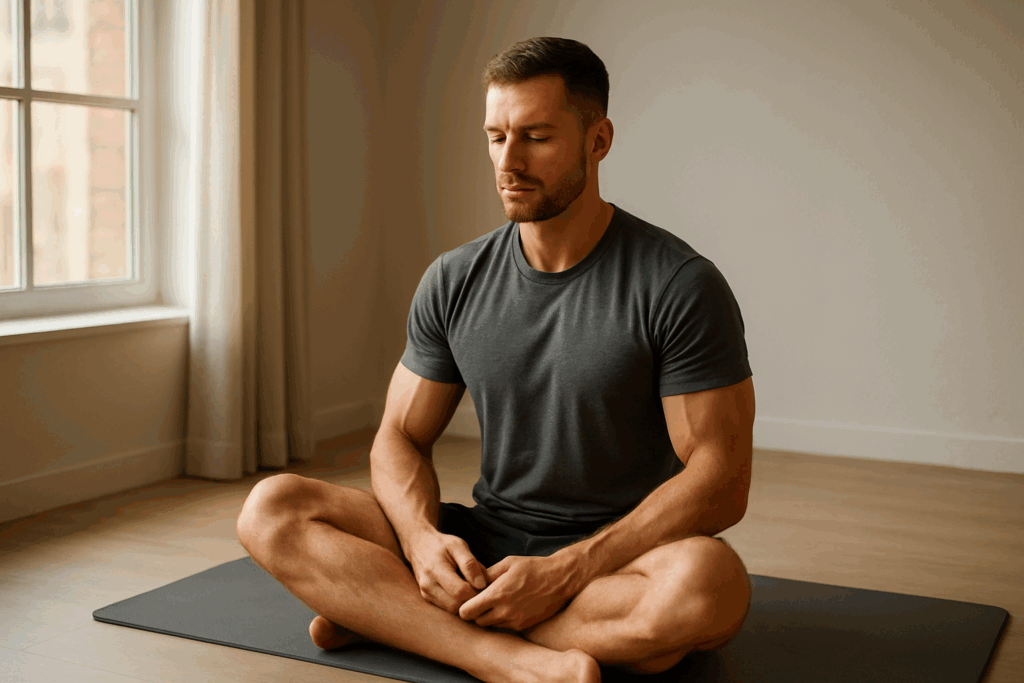
Enhancing Muscular Efficiency and Physical Readiness
While many assume that strength training is best performed in the afternoon or evening, compelling evidence supports the efficiency of morning workouts in building muscular endurance and power. Performing resistance-based morning training requires the body to recruit muscle fibers more effectively, particularly when transitioning from a resting state. This enhanced neuromuscular engagement can lead to improved coordination, muscle activation, and overall efficiency during exercise sessions.
Moreover, a quick morning workout focused on bodyweight or free-weight exercises can stimulate the central nervous system and encourage adaptation over time. With repetition, the body becomes more adept at priming for movement early in the day, reducing the time required for warm-up and increasing the readiness of muscles and joints. For athletes and fitness enthusiasts who train later in the day, incorporating a morning workout routine can serve as a preparatory session, improving performance in subsequent workouts.
In the context of long-term muscular development, morning exercise routines help reinforce consistency. The routine nature of early morning workouts establishes muscle memory and builds discipline, two factors that are critical for progressive overload and hypertrophy. For those beginning their strength training journey, a morning exercise routine for beginners at home can introduce foundational patterns and facilitate habit formation in a sustainable manner.
Creating Discipline Through Morning Rituals
Discipline is one of the least celebrated but most valuable benefits of a quick morning workout. Waking up early, resisting the temptation to hit the snooze button, and prioritizing physical movement requires a level of mental fortitude that extends far beyond fitness. This cultivated discipline has a ripple effect throughout the day, influencing dietary choices, work ethic, and time management. Morning training routines instill a sense of control and purpose, anchoring the day in accomplishment before other obligations intrude.
In behavioral psychology, this phenomenon is often referred to as a “keystone habit”—a single behavior that catalyzes positive changes in other areas of life. Engaging in a quick morning workout, for instance, often leads individuals to hydrate more, eat nutrient-dense foods, and practice mindfulness. The cascade of benefits that stem from this one act is powerful and deeply transformational. For men in particular, the structure provided by a morning workout routine for men can support goal setting and identity reinforcement. It is not simply about exercise; it is about defining the kind of person one aspires to be.

Supporting Hormonal Health and Longevity
Hormonal optimization is a cornerstone of physical health, particularly in the context of strength training and longevity. A quick morning workout aligns with the body’s natural hormonal fluctuations, amplifying the benefits of testosterone, growth hormone, and cortisol rhythms. Testosterone, which is vital for muscle growth, recovery, and libido, peaks in the early morning. Engaging in resistance training during this time leverages this natural spike, enhancing anabolic processes and muscle protein synthesis.
Growth hormone, another critical agent in tissue repair and fat metabolism, is also elevated during early hours. A morning fitness workout that includes explosive movements or interval-based cardiovascular training can synergize with these hormonal levels to accelerate recovery and fat loss. Over time, the consistent engagement of hormonal pathways through morning training can contribute to healthier aging, better metabolic function, and reduced inflammation.
For women and men alike, a well-designed morning workout routine also supports adrenal health by managing the body’s response to stress. Instead of encountering a chaotic morning filled with cortisol-spiking stimuli such as traffic and digital overload, individuals can create a calm, purposeful start that stabilizes hormonal responses. These subtle shifts accumulate over time, profoundly influencing vitality and aging trajectories.
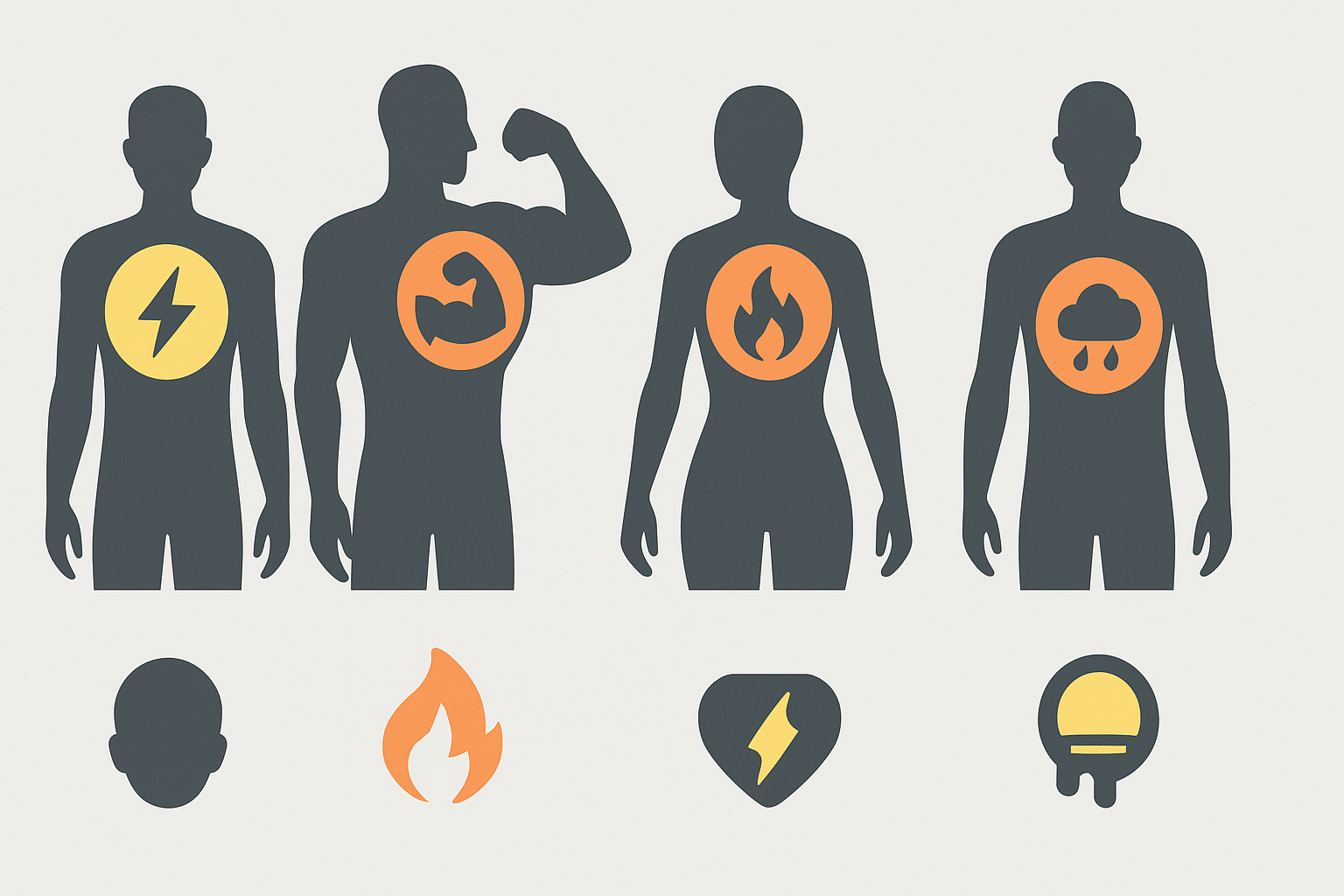
Convenience, Accessibility, and Time Management
A significant advantage of a quick morning workout lies in its unparalleled convenience and accessibility. In a world increasingly burdened by professional, academic, and familial demands, finding time for self-care can be difficult. However, the early morning hours often represent the least interrupted and most controllable period of the day. Morning workout exercises can be completed in as little as 15 to 30 minutes, eliminating excuses and integrating seamlessly into even the busiest schedules.
Many effective routines require minimal to no equipment, making them ideal for home implementation. A morning exercise routine for beginners at home may include bodyweight squats, push-ups, lunges, and planks—movements that promote full-body activation without the need for a gym. Furthermore, committing to a morning exercise routine reduces decision fatigue, as it removes the need to deliberate over when or how to exercise later in the day. This mental clarity enhances consistency and helps turn a new behavior into a permanent lifestyle change.
For men with specific performance or aesthetic goals, a morning workout routine for men can be tailored to emphasize hypertrophy, fat loss, or cardiovascular conditioning. This personalization ensures that the routine is not only efficient but also aligned with individual objectives, enhancing motivation and adherence. In short, the accessibility of early morning workouts makes them an invaluable tool for sustainable fitness integration.
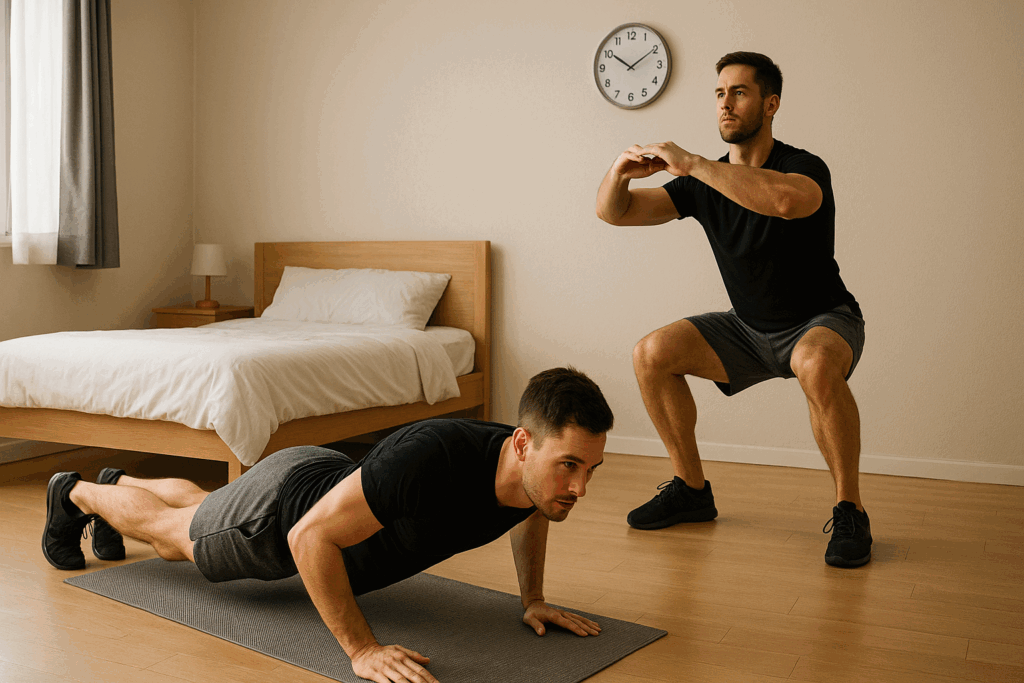
Boosting Immune Function and Disease Prevention
The immune system is intricately linked to lifestyle habits, and regular physical activity is one of the most potent modulators of immune function. A morning training routine that incorporates cardiovascular and strength-based elements stimulates lymphatic circulation, increases white blood cell count, and improves immune surveillance. These effects are particularly important in modern environments where chronic stress and sedentary behavior compromise immune resilience.
A quick morning workout also supports better sleep quality, another essential pillar of immune health. Individuals who engage in fitness in the morning tend to fall asleep faster and experience deeper, more restorative sleep. This sleep-enhancing effect further fortifies immune defense mechanisms, as many reparative processes occur during deep sleep stages. In effect, morning exercise becomes a proactive strategy for long-term wellness and disease prevention.
Moreover, consistent morning workouts reduce markers of systemic inflammation, which are linked to conditions such as cardiovascular disease, diabetes, and autoimmune disorders. The combination of improved circulation, metabolic regulation, and hormonal balance creates a physiological environment less conducive to disease development. As such, a morning fitness workout can serve as a foundational component in any preventative health strategy.
Encouraging Social Support and Positive Identity Formation
Although a morning exercise routine may seem solitary, it often fosters a sense of belonging and community. Whether joining a sunrise bootcamp, participating in virtual challenges, or simply exchanging encouragement with fellow morning exercisers online, individuals often feel more connected to like-minded people. This social support enhances accountability and motivation, which are critical for maintaining consistency in a fitness journey.
Furthermore, engaging in a regular morning workout routine reinforces positive identity traits. Over time, individuals begin to see themselves as disciplined, health-conscious, and high-performing. This shift in self-perception contributes to long-term behavioral adherence and greater life satisfaction. For men, in particular, the best morning workout may not only enhance physical attributes but also reinforce internal values related to strength, reliability, and determination.
By integrating morning workouts into daily life, individuals send a powerful message to themselves: that health, vitality, and growth are priorities. This act of self-care becomes a mirror of self-respect, reinforcing personal and professional aspirations. Morning training, therefore, is not simply about physical transformation; it is about evolving into one’s best self.
Developing Functional Strength and Injury Resilience
Morning workout routines that emphasize functional movements offer the additional advantage of developing joint stability, mobility, and neuromuscular control. These elements are essential for injury prevention, especially as individuals progress in their strength training journey. Exercises such as lunges, push-ups, deadlifts, and dynamic stretches prepare the body for the physical demands of daily life and athletic performance.
Training in the morning encourages movement variability and reinforces biomechanical patterns that support safe and efficient motion. When these patterns are practiced consistently, the body becomes more adaptable and resilient to unexpected physical stressors. This is particularly important for men and women who engage in physically demanding occupations or recreational sports. A well-structured morning workout routine for men, for instance, may include mobility drills, core stabilization, and posterior chain activation—all of which contribute to functional longevity.
Additionally, quick morning workouts create an opportunity to address imbalances or asymmetries before the day begins. Focused attention on weak or underactive muscle groups during this time helps correct movement faults and reduce injury risk. These prehabilitative strategies, though subtle, contribute substantially to long-term physical health and performance durability.
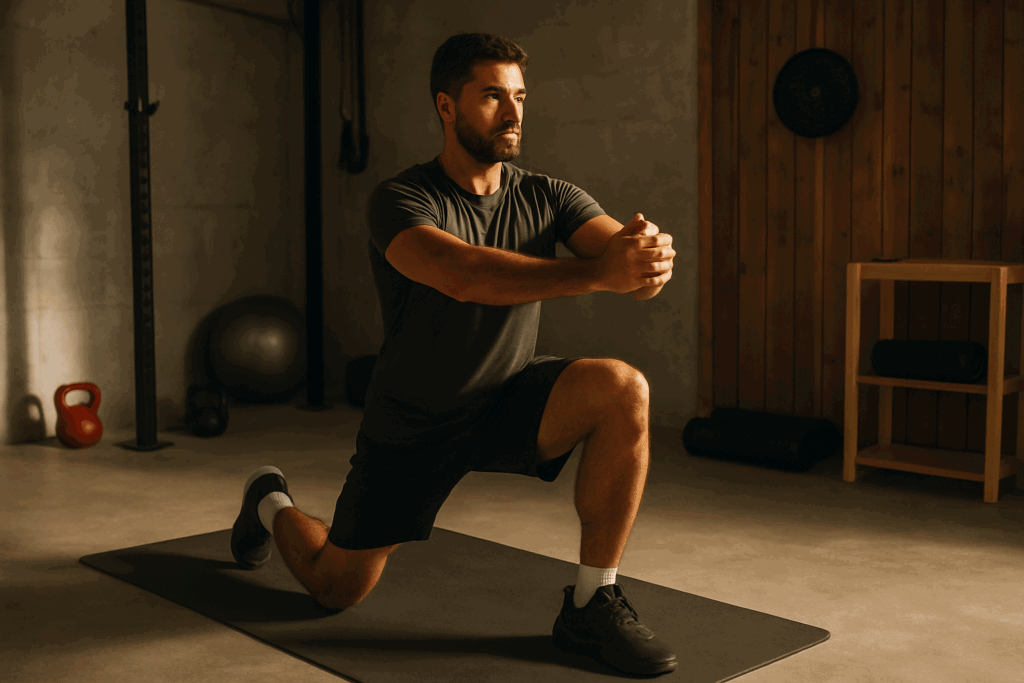
Fostering a Growth Mindset and Lifelong Fitness Commitment
Ultimately, the true power of a quick morning workout lies in its ability to cultivate a mindset centered around growth, consistency, and intentionality. Engaging in early morning workouts reinforces the belief that effort leads to progress, a cornerstone of what psychologist Carol Dweck refers to as a “growth mindset.” This mental orientation encourages resilience in the face of setbacks and motivates individuals to continue challenging themselves over time.
As morning workout exercises become part of a daily ritual, they contribute to a sense of purpose and self-mastery. The habit becomes less about obligation and more about opportunity—a chance to reconnect with the body, reset the mind, and reaffirm one’s goals. This long-term perspective transforms fitness from a finite endeavor into a lifelong journey. In this context, even a 20-minute morning exercise routine can hold profound significance.
Whether performed at home, in a gym, or outdoors, a quick morning workout can serve as a daily anchor that supports personal evolution. It is not merely about aesthetics or performance metrics, but about embracing a lifestyle of vitality, strength, and conscious living. For anyone seeking a sustainable path to improved well-being, the integration of a morning training routine offers both immediate benefits and enduring rewards.
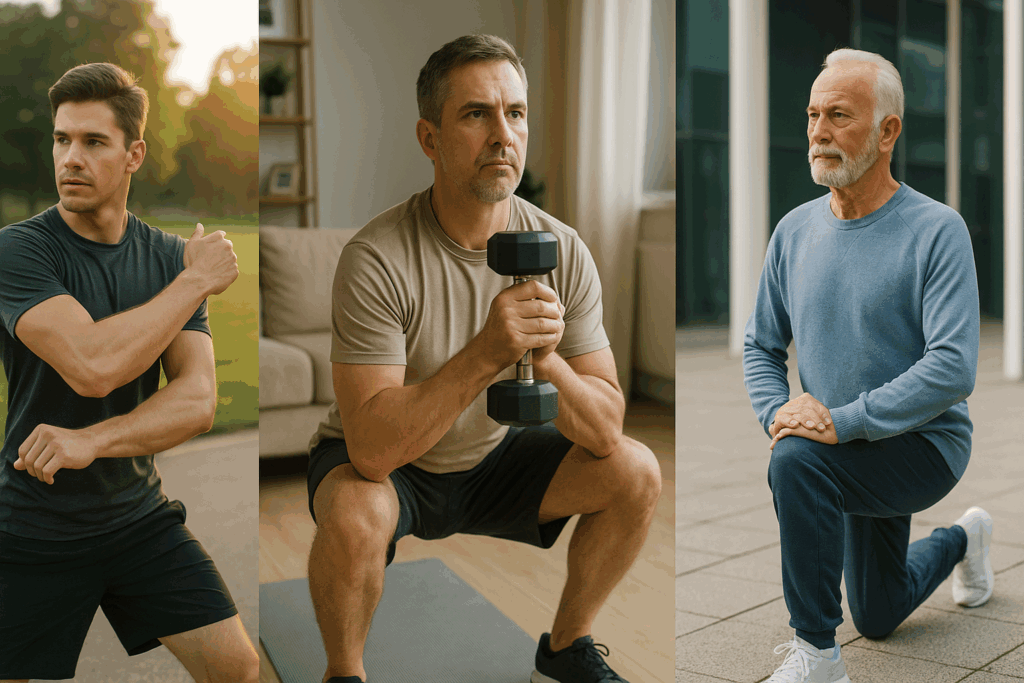
Frequently Asked Questions: 10 Powerful Benefits of a Quick Morning Workout
1. How does a quick morning workout impact long-term fitness adherence and psychological resilience?
Engaging in a quick morning workout consistently fosters a deeper psychological connection to self-discipline and long-term goal orientation. This daily practice trains the mind to prioritize progress over perfection, helping individuals build a sense of routine even amid life’s uncertainties. Over time, this commitment reinforces identity-based motivation, where fitness is no longer something to squeeze into a busy schedule but a non-negotiable part of daily living. Moreover, individuals who build a habit of early morning exercise often demonstrate higher resilience in other areas of life, including stress management and emotional adaptability. This mental shift supports not only physical consistency but also psychological flexibility and perseverance over decades.
2. What are good morning workouts for individuals with joint pain or limited mobility?
For those experiencing joint discomfort or mobility restrictions, a modified morning exercise routine that emphasizes gentle activation and range of motion is essential. Low-impact yoga flows, resistance band stretches, and aquatic exercises can be highly effective components of a morning workout routine. The key is to prioritize controlled, fluid movements that stimulate circulation without stressing the joints. Incorporating exercises like seated leg raises, gentle thoracic rotations, and shoulder mobility drills can improve flexibility and reduce stiffness commonly felt after a night’s rest. These variations allow individuals to enjoy the benefits of a quick morning workout while respecting the limitations of their physical condition.
3. What makes the best morning workout for men seeking strength and hormonal optimization?
The best morning workout for men aiming to enhance testosterone levels and muscle development should center on multi-joint movements and time-efficient intensity strategies. Compound lifts such as squats, deadlifts, and pull-ups performed in supersets or circuits offer both anabolic stimulation and cardiovascular challenge. Incorporating short rest periods and progressive overload during morning training activates muscle-building pathways and leverages the body’s natural hormone rhythms. To further optimize results, pairing morning workout exercises with protein-rich nutrition within 30 to 60 minutes post-exercise can enhance recovery and synthesis. Tracking progress over time using digital tools or journaling also reinforces accountability and measurable outcomes, aligning with men’s strength and aesthetic goals.
4. Can a morning workout routine benefit those with irregular sleep patterns or insomnia?
Yes, a well-timed morning fitness workout may help reset disrupted circadian rhythms and improve sleep quality over time. Exposure to natural morning light during outdoor morning ex amplifies melatonin regulation, while physical movement reduces nighttime cortisol levels that often contribute to poor sleep. For individuals struggling with insomnia, engaging in a consistent early morning workout can promote earlier evening fatigue and deepen sleep cycles. Mind-body modalities like tai chi or breath-coordinated bodyweight flow can further calm the nervous system while still delivering physical benefits. Importantly, consistency is critical; a habitual morning training routine can act as a biological anchor that stabilizes energy rhythms and encourages more restorative rest.
5. How does fitness in the morning influence decision-making and productivity throughout the day?
Completing a morning workout routine early in the day primes the prefrontal cortex, the brain region responsible for executive function, planning, and focus. This neurological activation enhances clarity and decision-making across professional and personal domains. Additionally, the dopamine release associated with morning exercise improves mood and promotes motivation for high-priority tasks. Individuals who adopt a morning training routine often report feeling more in control of their day, with increased tolerance for stress and a heightened ability to multitask effectively. In practical terms, starting the day with movement creates momentum and establishes a pattern of intentionality that carries through meals, meetings, and mental performance.
6. What are the most practical strategies for staying consistent with a morning exercise routine for beginners at home?
Creating a sustainable morning exercise routine for beginners at home requires strategic habit formation and environmental design. Setting clothes and workout gear out the night before reduces friction and prompts immediate action upon waking. Starting with a five-minute routine and gradually increasing duration helps establish a manageable entry point without triggering overwhelm. Using auditory cues, such as a motivational playlist or a wake-up alarm labeled with a personal mantra, reinforces positive associations with early morning workouts. Social reinforcement, such as checking in with a friend or using a fitness tracking app, also adds accountability. Above all, tying the workout to an existing morning habit like brushing teeth or brewing coffee makes the new routine more neurologically sticky and easier to maintain.
7. How can early morning exercise be adapted for individuals with high evening energy or night-shift schedules?
Although early morning workout schedules are ideal for many, individuals who function better in the evening or work overnight shifts can still benefit by strategically defining their “morning” as the period after waking. The same principles of morning workout routine design apply: short, efficient exercises performed after rest, combined with hydration and light exposure to regulate the body’s internal clock. For shift workers, aligning a morning fitness workout with their personal energy rhythms—even if this occurs at 5 PM—can support hormonal balance and mental acuity. Stretching, mobility work, or walking after a night shift helps reset the body for sleep and reduces muscular tightness. Personalizing the timing and content of the workout ensures it complements, rather than conflicts with, one’s lifestyle.
8. Is a quick morning workout sufficient for athletes or those pursuing advanced strength goals?
While a quick morning workout may not replace long-form resistance training sessions required for elite hypertrophy, it plays a vital role in neuromuscular priming, injury prevention, and recovery enhancement. Athletes can use morning training routines for active recovery, skill refinement, or low-volume technical drills that don’t compromise central nervous system recovery. Incorporating mobility flows, banded activation, and contrast showers post-workout optimizes tissue readiness for high-performance demands later in the day. Many strength coaches now advocate for dual-session training formats, where a focused morning workout precedes a higher-intensity evening lift. This format enhances work capacity and psychological readiness while also leveraging hormonal peaks.
9. Why is the morning workout routine for men particularly effective for balancing performance with lifestyle demands?
A structured morning workout routine for men offers a pragmatic solution to time constraints and high-performance expectations. Executives, entrepreneurs, and fathers often face unpredictable days where evening workouts may be derailed by obligations. Morning workouts eliminate this uncertainty by prioritizing health before reactive tasks begin. Additionally, engaging in a morning workout supports emotional regulation and cognitive sharpness, enhancing leadership and relational skills. Men also benefit hormonally, as early morning training capitalizes on peak testosterone levels, supporting lean mass maintenance and metabolic efficiency. Over time, these workouts serve not just the body, but professional identity and personal well-being.
10. What distinguishes a morning workout routine from other exercise schedules in terms of psychological impact?
Morning workout routines differ significantly in their psychological benefits due to their proactive orientation. They symbolize a choice to lead rather than follow the day’s momentum, which cultivates an internal locus of control. This sense of autonomy enhances intrinsic motivation, as individuals start the day with a self-affirming win. Unlike afternoon or evening workouts, which can be influenced by fatigue or logistical barriers, the morning exercise routine reinforces self-trust and personal reliability. These intangible gains often ripple into other areas of life, including interpersonal dynamics, goal setting, and stress management, making the practice an anchor of mental strength and personal integrity.
Conclusion: Why a Quick Morning Workout is the Ultimate Fitness Catalyst
The advantages of beginning each day with a quick morning workout extend far beyond physical conditioning. From boosting metabolic rate and enhancing hormonal health to supporting emotional stability and cultivating self-discipline, this practice serves as a powerful catalyst for comprehensive wellness. For those seeking the best morning workout or exploring morning fitness workout ideas, the simplicity and effectiveness of early morning exercise provide a gateway to improved strength, resilience, and longevity.
Importantly, this practice accommodates a wide range of fitness levels, making it accessible and adaptable. Whether the goal is to implement a morning exercise routine for beginners at home or to refine a morning workout routine for men aimed at peak performance, the benefits remain robust and scientifically validated. This alignment with both modern science and timeless wisdom makes the morning workout an enduring cornerstone of fitness and training excellence.
In a world increasingly defined by reactive habits and overstimulation, choosing to begin the day with deliberate, empowered movement is a revolutionary act. It signifies a commitment not only to physical health but to conscious living. When practiced consistently, a quick morning workout becomes more than exercise—it becomes a declaration of purpose, a vehicle for transformation, and a daily affirmation of the strength and vitality within.
Further Reading:
Working out in the morning: benefits and 14 tips to get started
Tips for a Good Morning Workout (Plus a 30-Minute Routine to Try)





